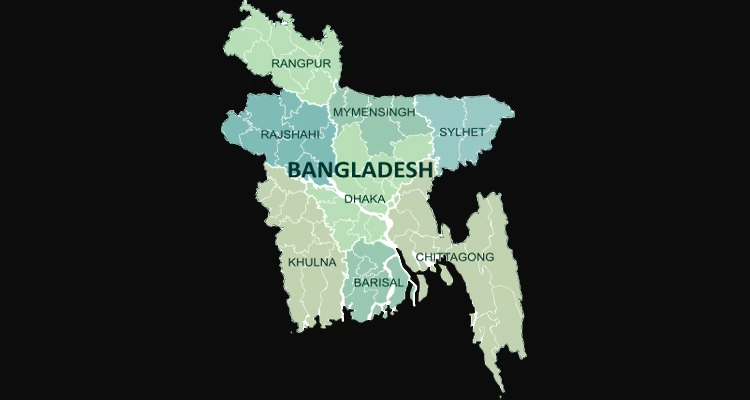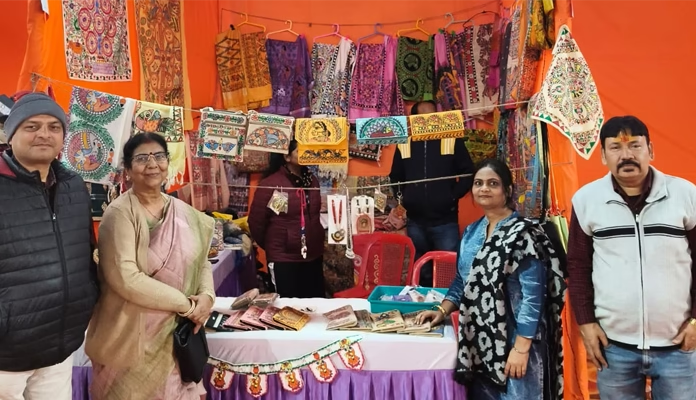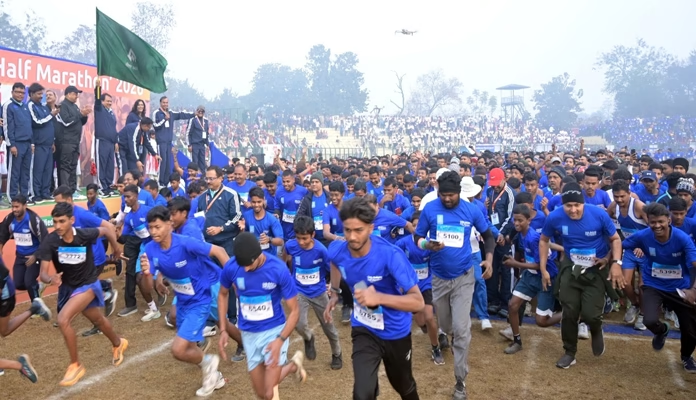
 by Nava Thakuria
by Nava Thakuria
After a series of incidents and subsequent media reports, an adviser in Bangladesh’s interim government, led by Nobel laureate Dr. Muhammad Yunus, stated that Dhaka had officially protested against India’s pushback policy, which has been adopted by Indian agencies to deport undocumented Bangladeshi migrants. Foreign affairs adviser Touhid Hossain added that a formal letter was sent to the Union government in New Delhi, requesting the deportation of individuals through official channels after careful verification. He emphasized that pre-verification of citizenship for each individual is essential before deportation to Bangladesh.
Dhaka is also preparing to send another diplomatic note to New Delhi over the continued push-ins of individuals through Bangladesh’s land border points at Khagrachari, Kurigram, Sylhet, Moulvibazar, Habiganj, Dinajpur, Thakurgaon, Panchagarh, Comilla, Feni, and Jhenidah. Recently, India’s Ministry of External Affairs sent a list of over 2,365 suspected Bangladeshi nationals—allegedly residing illegally in India—for verification by Dhaka. A ministry spokesperson on 22 May confirmed that once their nationality is verified, these individuals will be deported. Hossain acknowledged receiving the list and confirmed that each case would be examined properly.
Earlier, the Border Guard Bangladesh (BGB) claimed that India had sent nearly 2,000 individuals into Bangladeshi territory since early May under the new pushback operation. BGB Director General Mohammad Ashrafuzzaman Siddiqui stated that Bengali-speaking Muslims and some Rohingya individuals—originally from Myanmar’s Arakan province—were systematically pushed in by India’s Border Security Force (BSF) without official intimation. Siddiqui alleged that many Bangladeshi nationals, who had been living in India for decades (with their children acquiring Indian citizenship by birth), were picked up and sent back despite objections from Dhaka.
Some political analysts in Dhaka believe New Delhi’s strategy aims to exert pressure on the caretaker government formed after the abrupt fall of Sheikh Hasina’s Awami League government on 5 August 2024, following a massive student-led uprising that evolved into a popular movement. Hasina, considered close to India during her 16-year tenure, was airlifted from Dhaka and reportedly sheltered in India after a short request. However, New Delhi has yet to clarify whether the ousted leader has been granted formal asylum, even ten months after her departure—amid her rising unpopularity among a large section of the Indian public.
India, although not a signatory to the 1951 UN Refugee Convention or its 1967 Protocol, continues to host over two crore immigrants from neighboring countries like Pakistan, Nepal, Sri Lanka, Tibet, Myanmar, and Bangladesh. Traditionally, Indians have supported migrants in accordance with the Vedic philosophy of Vasudhaiva Kutumbakam (the whole world is one family). However, in recent years, the Supreme Court of India has taken a tough stance against illegal immigration. On 4 February, the apex court criticized the Assam government for delaying the deportation of declared foreign nationals held in Matia detention center, Goalpara, since January 2023.
Assam Chief Minister Himanta Biswa Sarma brought the issue to public attention, stating that his government was actively pushing back illegal infiltrators, including Rohingyas, into Bangladesh. On 10 May, Sarma told reporters in Guwahati that the pushback policy was being implemented to deal with all undocumented Bangladeshi migrants and declared foreign nationals. He also cited a Supreme Court order directing the deportation of declared foreigners who had not filed review petitions. Sarma added that around 100 individuals had already been sent back, with some of them transported from Delhi before being taken to the Bangladesh border.
It is worth recalling that during the NRC (National Register of Citizens) update in Assam, over 19 lakh undocumented individuals were identified. Hitesh Dev Sarma, a retired IAS officer who oversaw the NRC process, claimed that all illegal Bangladeshi migrants can be identified using the procedures outlined during the NRC exercise. He alleged that the first NRC coordinator, Prateek Hajela, used tampered software to include hundreds of thousands of illegal migrants in the list of beneficiaries for personal gain. Dev Sarma lodged a formal complaint against Hajela and called for complete re-verification of the NRC supplementary list before endorsement and implementation, claiming it would identify many more illegal foreigners.
Years ago, a Guwahati-based television journalist was named and shamed on social media for his alleged involvement in the NRC scam. The journalist supported accepting the draft NRC as final, with no further verification, and publicly praised Hajela on-air as one of India’s finest bureaucrats. Ironically, Hajela was later flagged by the Comptroller and Auditor General (CAG) for large-scale financial anomalies in the NRC process, in which the central government spent over ₹1,600 crore. The journalist, who never addressed the accusations against him on social media, continues to lecture the public on ethics and transparency.
A thorough investigation into the NRC-related irregularities may expose more individuals who prioritized personal gain over national security and interest.




